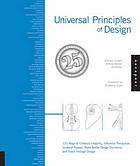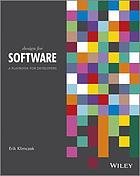Affordance, Conventions, and Design

Read these to prepare for class discussion
-
Universal principles of design
The Principle of Freeze-Flight-Fight-Forfeit, 110 -
Universal principles of design
The Principle of Errors, 82 -
two relevant articles from the Nielsen Norman Group
Emotional Design Fail: I'm Divorcing My Nest Thermostat
Error Message Guidelines -
Norman, D. A. (1999).
Affordance, conventions, and design.
interactions, 6 (3): 38-43.
[PDF] -
Norman, D. A. (1983).
Design rules based on analyses of human error.
Communications of the ACM, 26 (4), 254-258.
[PDF] -
Norman, D.A. (1988). To err is human.
In The Psychology of Everyday Things. New York: Basic Books, 105-140.
[TS171.4 .N67 1988]
[top]
Optional readings which may come up in class discussions

Klimczak, E. (2013).
Design for software: A playbook for developers.
Chichester, West Sussex: Wiley.
[wireframes]
Rantanen, E.M., Palmer, B.O., Wiegmann, D.A., & Musiorski, K.M. (2006).
Five-dimensional taxonomy to relate human errors and technological interventions in a human factors literature database.
Journal of the American Society for Information Science & Technology, 57 9), 1221-1232.
[PDF]
Hollan, J., Hutchins, E., & Kirsh, D. (2000).
Distributed cognition: toward a new foundation for human-computer interaction research.
ACM Transactions on Computer-Human Interaction, 7 (2), 174-196.
[PDF]
⇒ Read Sections 1 and 2 only
Useful, but not available online
Hackos, J. T., & Redish, J. C. (1998).
User and Task Analysis for Interface Design.
New York: John Wiley & Sons.
[QA76.9.U83 H33 1998]
⇒ Chapter 4, Thinking about the users' environment, 91-109
[top]

